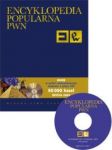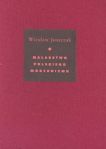One of the best-loved of all operas, Puccini's Madama Butterfly was given its premiere at La Scala Milan in 1904, where it received a terrible reception. The chemistry of the collaborators should have ensured success -- the librettists Luigi Illica and Guiseppe Giacosa had worked with the composer on La boheme and Tosca. Puccini withdrew the work and revised it thoroughly. When this version was presented to the public the adulation was extraordinary, and the work has been a central part of the operatic repertoire ever since.
The story is a highly emotional one -- of cynical colonial exploitation, blind love and infidelity, a potent mix fuelled by Puccini's high-octane score. The aria 'Un bel di' (One fine day) is the high point of the work where Butterfly, living in poverty with Pinkerton's child and her maid Suzuki sings of her confidence that her handsome US Navy captain will return to her. He does eventually return, but not for Butterfly, with tragic consequences.
Other information:
- 'Gavazzeni has life, warmth and a sure control. Then there is the compassionate and beautifully sung Sharpless of Tito Gobbi, a more effective presence than that of Mario Sereni, good as he is in the second recording. A better (though hardly ideal) Suzuki further strengthens the cast, and it is good to hear Maria Huder once again in the role of Kate which she sang as long ago as 1939 to the Butterfly of Toti dal Monte. Los Angeles herself is adorable in both sets, the voice in richest bloom here, the portrayal almost unbearably vivid in charm and magnanimity,' Gramophone October 1988
- One of the most popular and famous operas of all time
- Star cast with the the great Victoria de los Angeles.
- Essential title in the Brilliant Classics Opera series!
Ciężar
0.13
Autorzy
Victoria de Los Angeles, Giuseppe di Stefano, Anna Maria Canali
Format
14.0x12.0cm
Oprawa
Plastikowa
Rok wydania
2011
Dla tego produktu nie napisano jeszcze recenzji!
Napisz recenzjęWłaściciel sklepu internetowego nie gwarantuje, że publikowane opinie pochodzą od konsumentów, którzy używali danego produktu lub go kupili.


















